Thoughts on competitions and the hard work that goes into producing them.
By Jessica Capalbo
On October 12 and 13, 2018, Momentum Silver Street hosted USA Climbing’s 3rd National Cup competition, the Bayou City Classic. The National Cups are a series of four competitions that aim to bring professionals and amateurs together to test their abilities. The top 30 men and women receive a national ranking and an invitation to the Open National Championships, which will take place in Redmond, Oregon on February 1 and 2 of 2019.
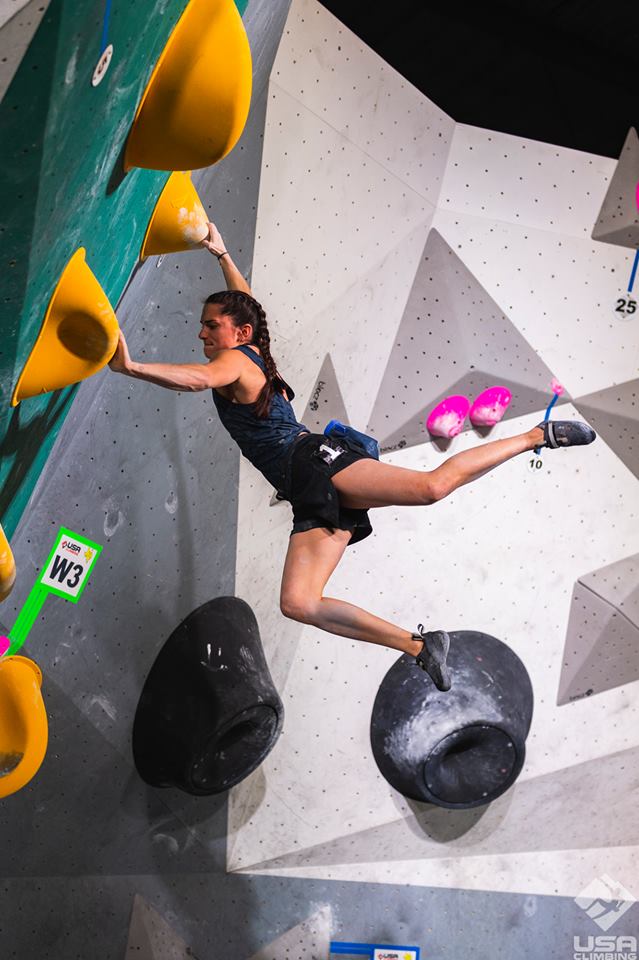
(Photo by USA Climbing of Kyra Condie on Women’s 3 in finals)
This bouldering season, I had the opportunity to compete in two National Cups–the Mesa Rim Pro Am and Momentum’s Bayou City Classic. Working at Mesa Rim gave me a behind-the-scenes look at the hard work that goes into hosting a high level competition. Not only was I able to observe the event as an employee, but I was also able to do so as a competitor. After participating in both events, it is evident that the two gyms executed their respective competitions with confidence and ease, which I attribute to their dedication and experience.
After the Bayou City Classic, I had the pleasure of sitting down with Momentum’s Miles and Jessica West to talk about their experience and contribution to the event.
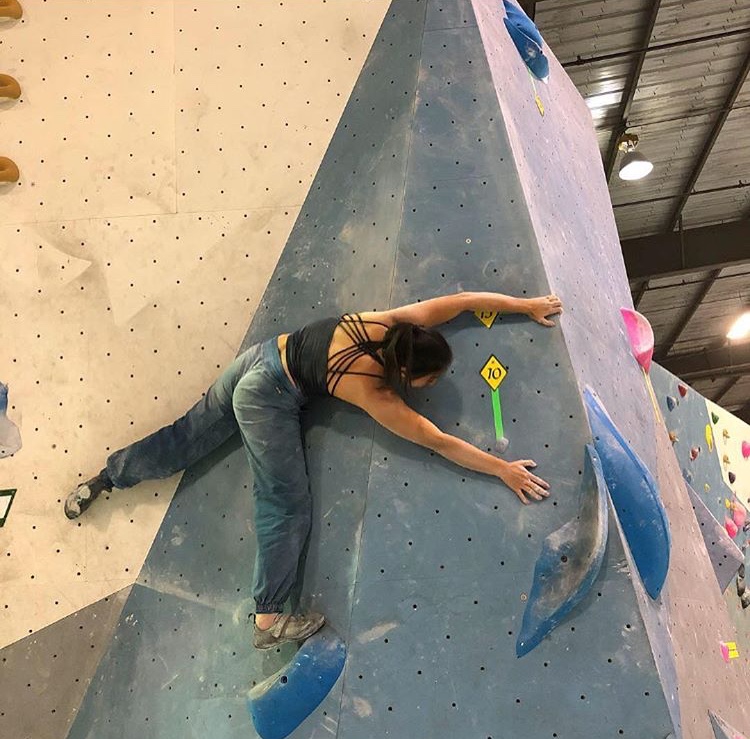
(Photo by Jessica West of Jessica Capalbo during the qualifier round)
Jessica West is a personal trainer, route setter, and youth strength and conditioning coach who works for Life Time and Momentum. She has been climbing since January of 2015 and I can say from personal experience that she is a savage on the climbing wall. Climbing has enriched Jessica’s life with new friends, adventure, and work opportunities. She loves it so much that she left her corporate 9-5 job to pursue a career in the climbing industry. She even returned to school for a Master’s Degree in Sport and Exercise Science.
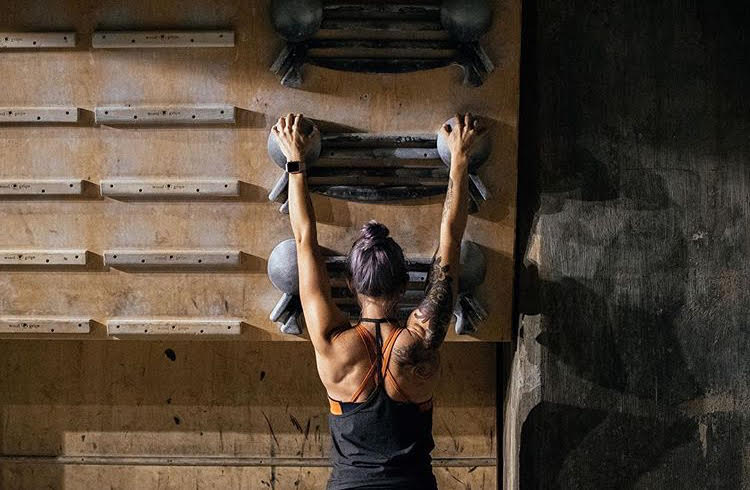
(Photo by James Ashford of Jessica Blanton training at Climb So iLL)
While in Texas, Jessica and I talked a bit about how she prepares athletes for competitions. Her athletes train year-round, but shift their focus depending on the season. During the competition season, they focus on climbing performance, mental and emotional training, and more individualized skill requirements. In between seasons, they focus on general strength, conditioning, and skill development. Typically, at least one of four practices per week is strength and conditioning off the wall. Even teams that only meet two to three days per week spend more than 25% of their time off the wall between warm-up, cool-down, and off-wall exercises during practice.
As a child, I had the privilege of competing for a youth team. We trained together three days per week and competed in bouldering, sport, and speed. When I graduated out of the youth circuit, I began training myself with the limited knowledge I had about training effectively and efficiently. Jessica gave me a little insight into the difference between coaching youth and adult athletes at a high-level. At the core of it, youth and adults can be treated the same. They each have individual needs and must undergo a proper assessment prior to developing a training program. Some exercises are not appropriate for youth athletes as they are still growing; though adults have technically finished growing, some exercises will be off-limits for them as well. Creating a training plan depends on the individual’s needs and their goals.
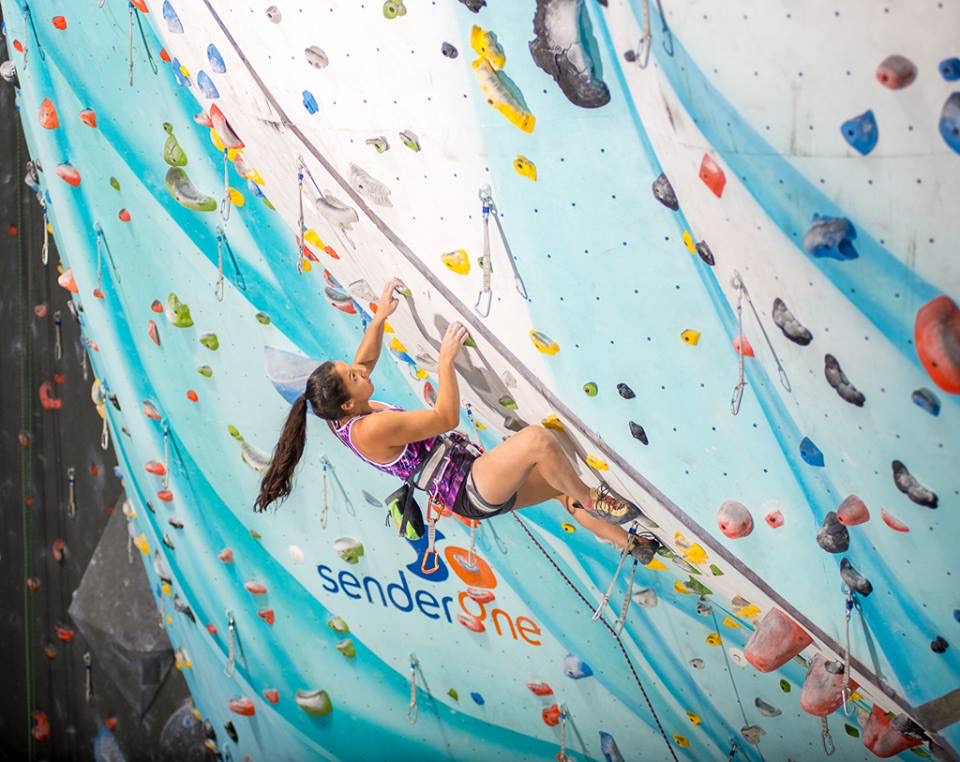
(Photo by Sender One of Jessica Capalbo as a youth competitor)
After interviewing Jessica, Miles West and I talked a bit about his experience route setting for local and professional competitions. Miles began working in the climbing industry about 5 years ago at the front desk of Aiguille Rock Climbing in Orlando, Florida. After about 6 months, Miles grew increasingly interested in route setting; however, Aiguille was already fully staffed with route setters. To get his foot in the door, Miles helped in any way he could. He washed holds, helped prepare for competitions, did wall maintenance, etc. Slowly but surely, Miles was able to start a route setting career and soon moved to St. Louis, Missouri, for a position with Climb So iLL, where he met his wife, Jessica. At Climb So iLL, Miles honed his route setting skills, was the Primary Instructor for the climbing school, and was the Shift Manager of the front desk. Eventually, Climb So iLL’s Head Route Setter moved on from his position and Miles had the opportunity to manage the setting program. Now, Miles is a full time route setter for Momentum in Houston, Texas, where he has the pleasure of working with an extremely talented crew.
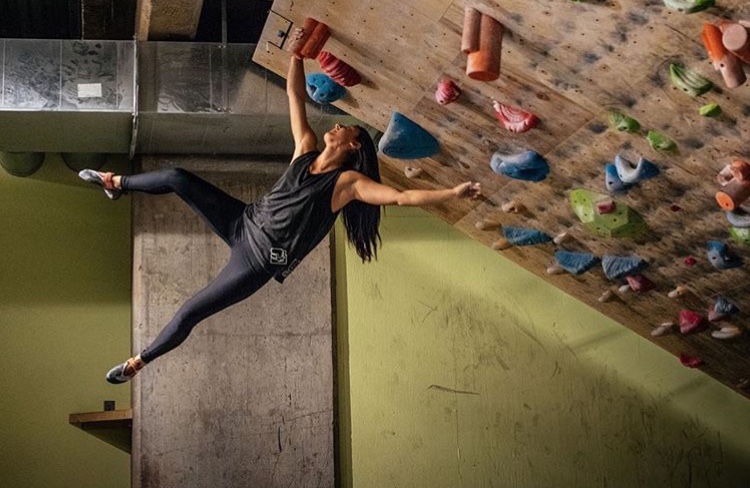
(Photo by Taylor Ashford of Jessica Capalbo on Miles West’s route at Climb So iLL)
Miles has set for local, youth, and professional competitions. He says that the most obvious difference is the ability of the field. Although Texas is home to a stellar group of athletes, professional competitions attract an even larger pool and it’s the route setters’ job to separate the field. Route setting and hosting comps takes a high level of planning and teamwork. Miles said it best, “It’s all in the details. Don’t pass over the small stuff like parking accommodations or sponsorship signage and assume it’s going to work itself out. There needs to be a clear and constant line of communication between gym management, gym staff, route setting crew, and vendors to make sure all scenarios have been played out. When it’s done right, it runs like clockwork. When it’s thrown together, it’s a train wreck.”
Setting for a professional competition takes a lot of work. The planning begins months in advance and consists of logistics and scheduling. For the Bayou City Classic, the route setting went on for a full week. A typical day began with a meeting, then moved on to setting, and fore running. The fore running was the most focused and difficult part of the process. Not only did the route setters climb a lot, but they also had to make sure the climbs fairly tested and separated the abilities of some of the most talented climbers in the nation. This was just as mentally exhausting as it was physically.
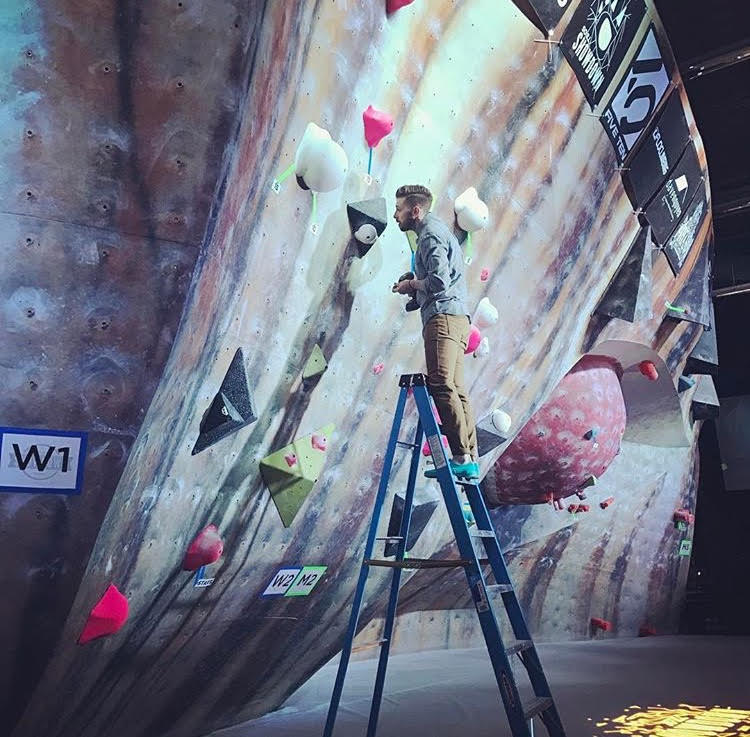
(Photo of Miles West setting for the 2017 Climb So iLL Showdown)
There is a lot of pressure that comes with setting such a high profile competition. Miles continually reminds himself that although the work is difficult, he is attaining his goal. He sets climbs to challenge his personal abilities and to challenge the abilities of other talented rock climbers. Miles attributes part of his success to his awesome crew of fellow route setters. For the Bayou City Classic, he was able to work with the Momentum Texas crew as well as top level setters from around the country. Ultimately, the work was done as a team to present a quality competition.
I have competed in countless competitions over the past 13 years, including local, youth, collegiate, and professional competitions. The amount of work that goes on behind the scenes is truly impressive and humbling. I was particularly impressed with Momentum’s National Cup. The competition was extremely well organized and the route setters did a fantastic job of testing a variety of skills from the athletes. Executing a high level competition with such ease and quality is a great accomplishment. I want to thank everyone who made the competition possible, especially Jessica and Miles who played such important roles and took the time to share their experience with me.

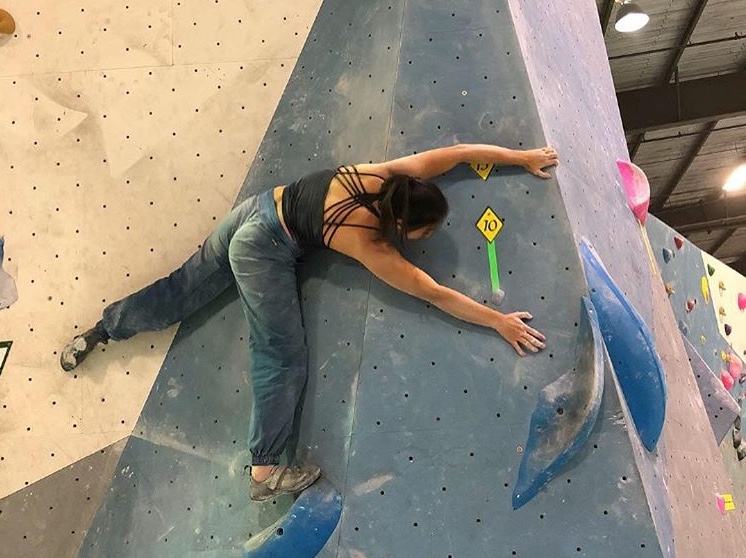

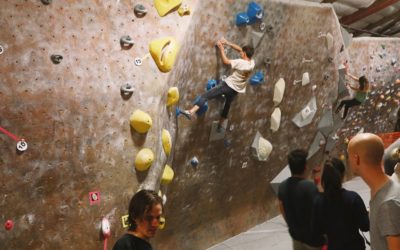
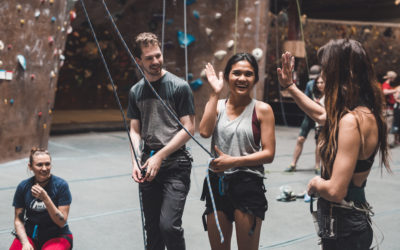
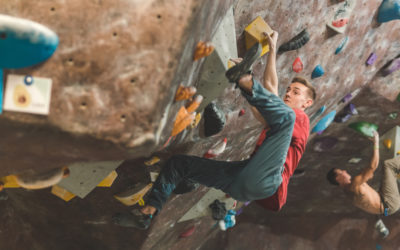
Recent Comments